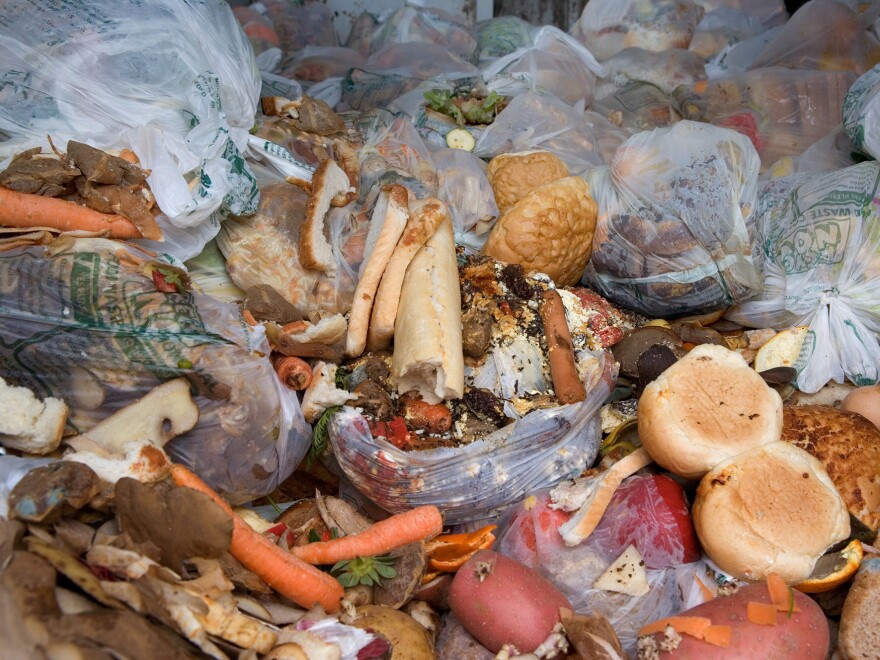When solid waste breaks down in landfills, toxic greenhouse gases are emitted into the atmosphere and pollutants seep into soil and groundwater.
According to an Environmental Protection Agency report published in 2021, annual CO2 emissions from food loss and waste are equal to the CO2 emissions of 42 coal-fired plants. The report also states food waste is the single most common material in U.S. landfills.
Joel Zarrow is the president and CEO of the Park City Community Foundation. He said the foundation’s climate fund has a goal of eliminating food waste in Summit County by 2030 because it could have the greatest impact on the environment.
"We're not the only ones in the space. And that's why we're jumping into this space,” he said. “The city has a goal. The resorts have a goal. The Chamber of Commerce has a goal. So we're jumping in with other partners to determine how we're going to achieve zero waste by 2030.”
Eyee Hsu is a member of the climate fund steering committee. She said the landfill has finite space and it’s filling up fast.
“Well, this was in consultation with the Summit County landfill manager. We consulted with Luke Cartin from the city. We talked with the county, and this what they've been doing: studies in their landfill of what is going in and what can be the divertible,” she said. "We only have eight to 15 years left before the landfill is going to be full and 80% of that is deemed to be divertible. And most of that is food waste.”
Zarrow said landfills are the third largest producer of methane in the environment.
“Methane is just absolutely devastating," Zarrow said. "It holds 84 times more heat than CO2. So if we slow the rate of methane production in our landfills, we make a really big difference for the environment.”
Zarrow said the next step in the zero-food waste goal is a comprehensive strategic plan by the Community Foundation.
“And we are working with the nonprofit sector, the government sector and the private sector to examine who is doing what, where are the gaps, and where are the linkages that need to be made,” he said. “And we have to cost it out. And you know, we live in a world of finite resources, where can we allocate the Community Foundation's resources, which really is the community resources.”
Hsu said many states such as California successfully reduce food waste and are great models for Summit County.
“I think we would want to get to a model like that, where everybody in the community has access to composting and recycling,” she said. “And, I also want to focus on something that the community foundation always emphasizes is how are we going to put that equity and inclusion lens on this work, so that, again, everybody is part of it, and we activate everybody in the community.”
Zarrow said the Community Foundation allocated $250,000 in the budget for climate fund grants this year and continues to fundraise.



